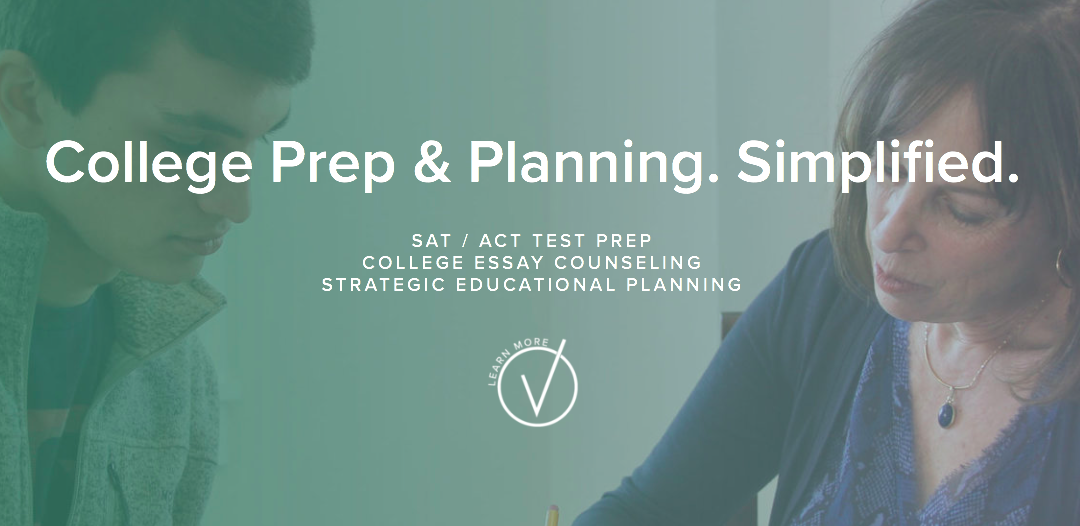
by Erica L. Meltzer | Oct 29, 2018 | Blog, The New SAT
Image credit: Essayontime.com.au
The SAT and ACT have released their scores for the class of 2018, accompanied by the predictable wailing and gnashing of teeth about persistently low levels of STEM achievement.
As Nick Anderson of the Washington Post reports:
Forty-nine percent of students in this year’s graduating class who took the SAT received a math score indicating they had a strong chance [75%] of earning at least a C in a college-level math class, according to data made public Thursday. That was significantly lower than on the reading and writing portion of the tests: 70 percent of SAT-takers reached a similar benchmark in that area.
What the article quite remarkably fails to mention is that the benchmark verbal score, 480, is a full 50 points lower than that for math. Given the discrepancy, it is entirely unsurprising that fewer students met the benchmark in math.
Let’s try some basic — and I do mean basic — critical thinking with statistics, shall we?
To understand what a 480 verbal score on the redesigned SAT actually means, consider that it translates into about 430 on the pre-2016 exam, which in turn translates into about a 350 (!) on the pre-1995 SAT.
This is not “college ready” in any meaningful sense of the term. In my experience, students scoring in this range typically struggle to do things such as identify when a statement is a sentence, or grasp the concept that texts are making arguments as opposed to “just saying stuff.” But to reiterate one of my favorite points, this is in part why the SAT was changed: the decline in reading/writing scores was becoming embarrassing. And if you can’t change the students, the only other option is to change the test, and the scoring system along with it. (more…)

by Erica L. Meltzer | Oct 20, 2018 | Blog, College Essays
Image ©Nickshot, Adobe Stock
Note, January 2022: This post was written in 2018, before the start of the Covid-19 pandemic. Obviously, many things have changed since then, not least the amount of psychological pressure that many high school students have experienced. Clearly, some of the boundaries and expectations surrounding acceptable/advisable topics for admissions essays have shifted, and applicants undoubtedly have more leeway in discussing mental-health issues than they did in the past. That said, I would still caution against making this subject the exclusive focus of your essay(s). If it happens to be relevant—and it very well might be, given the events of the last couple of years— then you should focus on discussing it in a mature way that conveys qualities such as empathy and resilience, and that demonstrates your ability to reflect insightfully on what may have been very difficult situations.
As regular readers of my blog may know, I periodically trawl the forums over at College Confidential to see what’s trending. Recently, I’ve noticed a concerning uptick in the number of students asking whether it’s appropriate for them to write about mental health issues, most frequently ADD and/or anxiety, in their college applications.
So the short answer: don’t do it.
The slightly longer version:
If you’re concerned about a drop in grades or an inconsistent transcript, talk to your guidance counselor. If these types of issues are addressed, the GC’s letter is the most appropriate place for them. If, for any reason, the GC is unable/unwilling to discuss them and the issues had a significant impact on your performance in school that unequivocally requires explanation, you can put a brief, matter of fact note in the “is there any additional information you’d like us to know?” section, but think very carefully about how you present it. Do not write your main essay about the issue. (more…)

by Erica L. Meltzer | Oct 13, 2018 | Blog, SAT vs. ACT
Image © Antonioguillem, Adobe Stock
The notion that the ACT is a curriculum-based test is one of those hoary old ideas that, like so-called “obscure words” or the “guessing penalty” on the old SAT, has apparently now achieved zombie status. In fact, I confess I thought it had more or less disappeared into the ether until I encountered it on Instagram (yes, Instagram!) of all places. And by a test-prep company no less. That made me realize it wasn’t nearly as gone as I thought. Hence this post.
The confusion stems in large part from the fact that way back, the ACT was originally designed to be aligned with a generic high school curriculum—“originally” meaning “in the 1950s.” At that point, the exam did actually test some pieces of specific factual knowledge. In the late 1980s, however, the original Social Studies and Science tests were replaced with the current Reading and Scientific Reasoning tests and, presumably recognizing that students’ exposure to specific topics varied dramatically as well as wanting to compete with the SAT, the ACT moved towards testing more general reasoning abilities. (more…)

by Erica L. Meltzer | Oct 3, 2018 | Blog, Tutor Interviews
I’m happy to introduce a new series for this blog: each month, I’ll be posting a short interview with a different tutor. While I no longer tutor myself, I still get asked for recommendations of tutors who use Critical Reader books/methods, and so I’ve decided to introduce readers to these people directly. The first installment, below, is with reading and writing specialist Valerie Erde. Valerie student-taught with me for several months, and her students have consistently achieved outstanding results on both the SAT and the ACT. She recently founded her own company, Veridian Prep.
Tell us about Veridian Prep.
VeridianPrep is a Greenwich, CT and NYC-based test prep, tutoring, and college advisory company that prides itself on a small, but highly experienced, team of subject experts that provides personalized, evidence-based, and structured instruction and guidance to get measurable results for our students and families. We believe that excellent diagnostics, high-quality instruction and materials, and individualized attention have been the keys to our students’ successes.
(more…)

by Erica L. Meltzer | Aug 3, 2018 | Blog, College Admissions
If you’re a high school junior or senior, there’s a pretty good chance you’ve been inundated by emails, postcards, and perhaps even free “express” applications practically begging you to apply. Some of these schools you’ve heard of, and other you, well…haven’t. At any rate, the sheer volume of mail is pretty intense, if not downright overwhelming. And then there are the schools your guidance counselor recommended, and the ones you found in your Fiske guide, or maybe your copy of Colleges That Change Lives. How on earth do you sort through all the possibilities and winnow them down into a manageable list? (more…)

by Erica L. Meltzer | Jun 4, 2018 | Blog
Recently, a colleague who is foreign-language classroom teacher told me the following story: since she started teaching around a decade ago, she’s always made sure to introduce her beginning-level classes to the concept of cognates – words that are very similar in English and the Romance language she teaches, and that are derived from a common root.
Every previous year, her students had been perfectly receptive to the concept, but this year they would have none of it: they mocked the term cognate as an obscure “SAT word” and insisted that they shouldn’t be forced to learn it.
My colleague then asked her students how they expected to be able to read high-level material in high school and college without a strong vocabulary.
Nothing. Blank stares. (more…)





